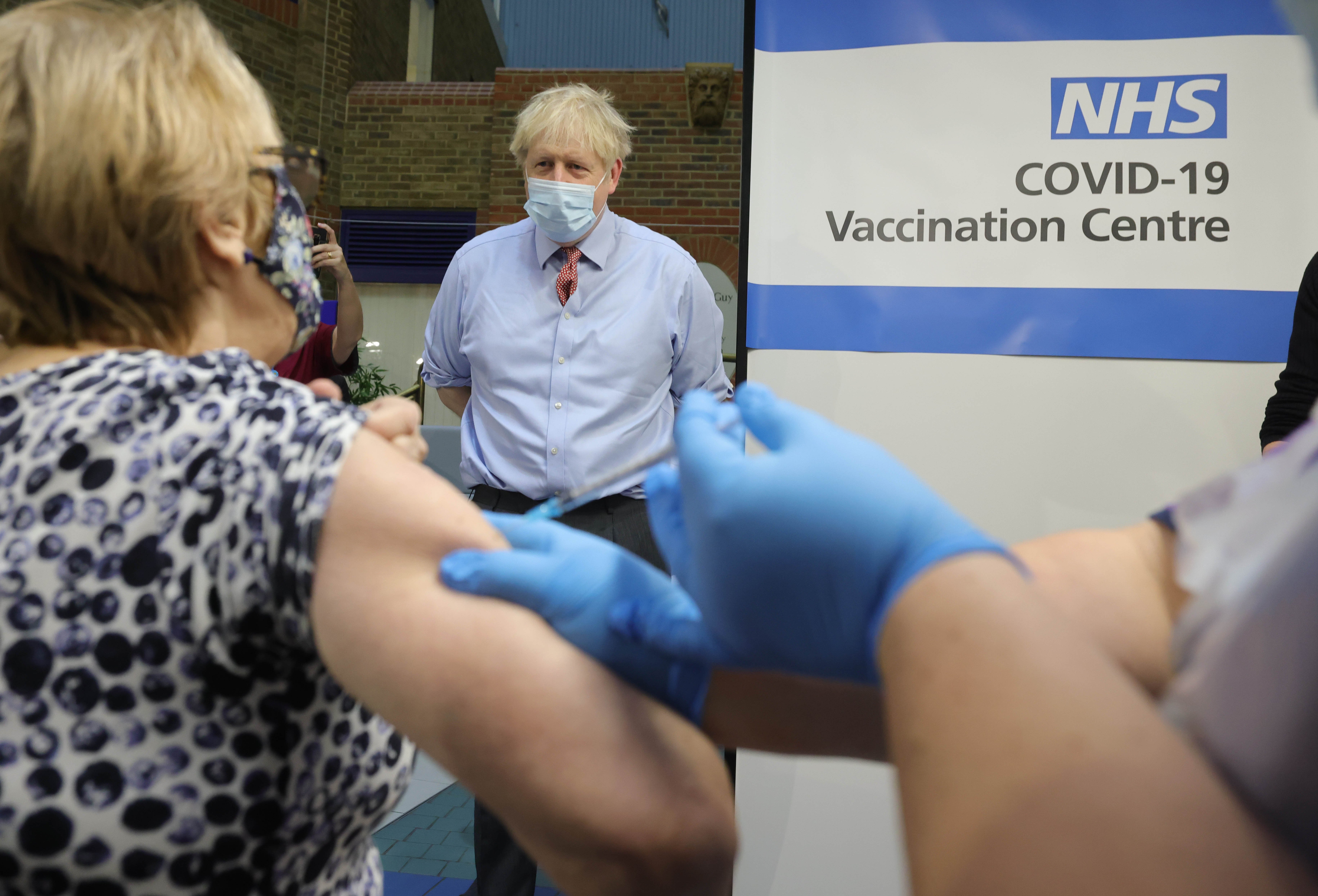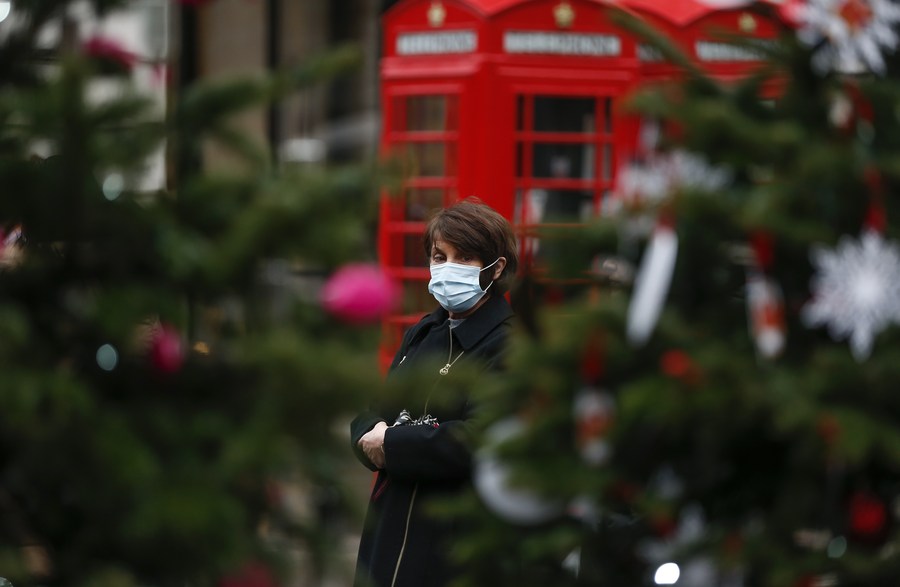Vaccine should not make UK complacent ahead of Christmas
- By Tom Fowdy
 0 Comment(s)
0 Comment(s) Print
Print E-mail China.org.cn, December 17, 2020
E-mail China.org.cn, December 17, 2020

Last week, the United Kingdom became the first country in the world to approve the Pzifer COVID-19 vaccine and commenced rollout, prioritizing frontline healthcare workers and the elderly in care homes.
The pace of distribution comes while the government is under pressure to revive the economy having ended a one-month lockdown for England and Wales. The U.K. has persistently ranked among the countries with the highest number of cases and deaths, with total infections now getting close to 2 million and fatalities exceeding 64,000.
The introduction of vaccines is undoubtedly a cause for optimism, but it does not mean the crisis is over. There is a danger that the country and its population may suffer from complacency. The rollout of vaccines is not an instantaneous transformation, but a process and one which may reportedly take an entire year to fully materialize.
Given that the government has witnessed repeated failures in initiating a strict test and tracing scheme, as well as widespread disobedience and resistance to the rules, there is a significant risk Britain could face yet one more major wave of the COVID-19.
Since the beginning of the pandemic, the U.K. has struggled to strike an adequate balance between the priorities of sustaining the economy and combating the pandemic, being afraid to take "tough decisions," and instead weighing up further steps based on their public popularity than considering the greater good.
This has repeatedly led to inaction by Prime Minister Boris Johnson, only for him to then make a last-minute U-turns and be forced to impose tougher measures anyway, which take a greater toll on the economy. For example, the U.K. was late to act on the initial lockdown in the Spring which ultimately made the situation more severe, and then finally announcing a fresh lockdown in November in a confusing way.
These abrasive last-minute decisions have never compensated for a strategy or improved organizational capacity to combat the virus. When the U.K. came out of the first lockdown, the government rushed to reopen international travel, talked about "saving the summer" and even pushed a disastrous "eat out to save the economy" campaign funding restaurants to offer meals at half price.
The British public, largely driven by an individualistic mindset, failed to take the rules seriously at large. Many people refused to adhere to social distancing and wearing a mask, all of which combined with the government's contradictory messages and mixed priorities resulted in the COVID-19 rebounding bigger and nastier than before.
Now, the U.K. heads towards Christmas and, again, many of the same mistakes and attitudes are still lingering. To appease populist demand, Boris Johnson is allowing multiple households to mix for the holiday. Irrespective of what the government wants, people are likely to do it anyway.

Add this to the onset of winter, which makes the COVID-19 more infectious, and the probability of another major crisis is incredibly high. This is not without expert warning. Two U.K. medical journals have warned of disastrous Christmas. Likewise, in the United States, immunology expert Dr. Anthony Fauci has warned against meetings on Christmas. Of course, his advice will also fall on death ears.
Amid such warnings, the emergence of COVID-19 vaccines account for little at this point, as their availability remains limited and their targeting low. This is not an instantaneous miracle that transforms life magically back to normal.
While the antidotes can protect frontline healthcare workers and avoid the repeated disasters seen in elderly care homes, it doesn't yet have any effect on preventing widespread community transmission of the virus that can still harm and kill many elderly, sick and vulnerable people.
It does not stop hospitals going to the verge of breaking point and becoming places of great hazard. All the same risks remain, and in Britain, vaccines are not going to be distributed to the wider public until Easter time.
As a result, there should be no complacency in Britain. Another major COVID-19 wave in the country is highly likely, if not an inevitability, and this is without considering the implications of a new reported mutation in the virus now starting to spread. There is nothing in the government's strategy or public conduct which suggests it will be hugely different this time round. There may be light at the end of the tunnel, but the country's fight and struggle against the virus is not over yet.
Tom Fowdy is a British political and international relations analyst and a graduate of Durham and Oxford universities. He writes on topics pertaining to China, the DPRK, Britain and the U.S. For more information please visit:
http://www.china.org.cn/opinion/TomFowdy.htm
Opinion articles reflect the views of their authors, not necessarily those of China.org.cn.
If you would like to contribute, please contact us at opinion@china.org.cn.






Go to Forum >>0 Comment(s)